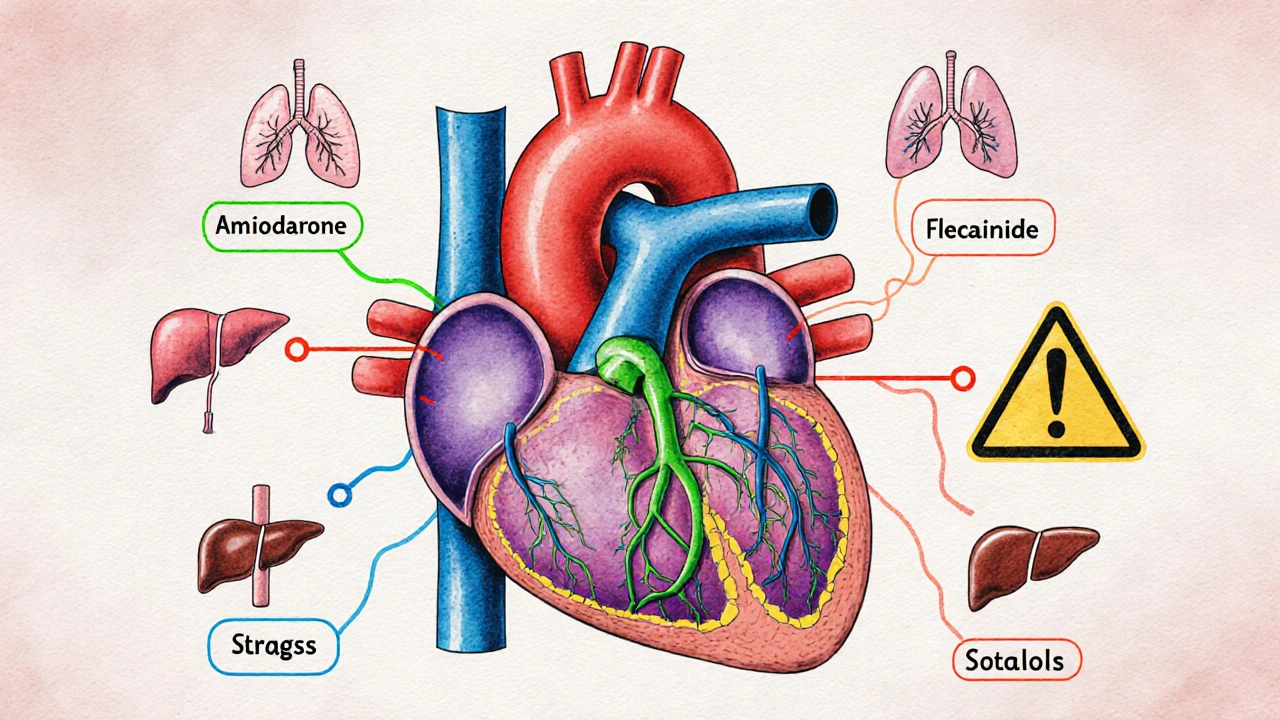Antiarrhythmic Drugs: What They Are, How They Work, and What You Need to Know
When your heart skips, races, or beats unevenly, it’s not just a flutter—it’s a signal that something’s off. Antiarrhythmic drugs, medications designed to restore and maintain normal heart rhythm. Also known as heart rhythm medications, these drugs are prescribed when the heart’s electrical system goes haywire, leading to conditions like atrial fibrillation, ventricular tachycardia, or premature beats. They don’t cure the root cause, but they help keep your heartbeat steady so your body gets the blood flow it needs.
These drugs fall into four main classes, based on how they affect heart cells. Some block sodium channels to slow down fast signals. Others target potassium or calcium channels to lengthen the time between beats. Then there are beta-blockers and other agents that calm the nervous system’s influence on the heart. Each type works differently, and choosing the right one depends on your specific rhythm problem, other health conditions, and even what other meds you’re taking. For example, if you’re on blood thinners or have kidney issues, certain antiarrhythmics can be risky. That’s why you can’t just pick one off the shelf—these are powerful tools that need careful management.
It’s not just about the drug itself. What matters just as much is how it fits into your life. Some antiarrhythmic drugs need regular blood tests to check for side effects. Others can interact with common supplements like St. John’s Wort or herbal remedies that people think are harmless. Even something as simple as drinking grapefruit juice can change how your body handles the medication. And while these drugs help many people live without symptoms, they’re not without risks—some can actually cause new rhythm problems, which is why doctors monitor patients closely.
You’ll find posts here that dig into how these drugs compare with each other, what alternatives exist, and how to spot early signs of trouble. You’ll also see how compounding pharmacies sometimes make custom versions when standard pills don’t work for a patient’s needs. There are guides on what to do if you miss a dose, how insurance handles these prescriptions, and even how to tell if your symptoms are from the drug or your condition. This isn’t just a list of names and dosages—it’s a practical look at what these medications really mean for your day-to-day health.
Whether you’ve just been prescribed an antiarrhythmic or you’ve been taking one for years, the goal is the same: keep your heart beating right without making things worse. The posts below give you the real-world details you won’t get from a pamphlet—what works, what doesn’t, and what to watch out for.

- 11 Comments
Amiodarone is highly effective for dangerous heart rhythms but carries serious long-term risks. Learn how it compares to other antiarrhythmic drugs, when it's truly needed, and safer alternatives that may work better.
